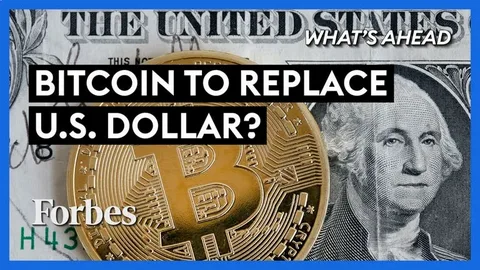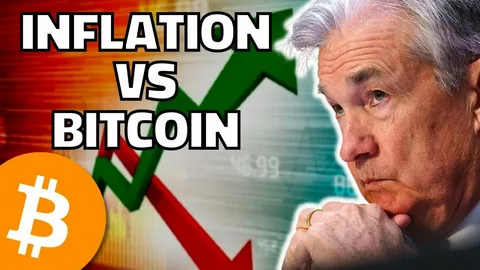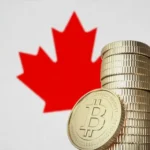Introduction
As inflation continues to challenge global economies, the question of how governments can best protect their citizens’ purchasing power becomes more pressing.
Within this context, a thought-provoking proposal has emerged in the Netherlands: the Dutch government is exploring the possibility of incorporating Bitcoin reserves into their financial strategy. This bold idea raises a host of questions. Could Bitcoin serve as a viable hedge against euro inflation? Is such a move feasible or merely a speculative venture?
In this blog post, we’ll delve into the Dutch government’s proposal, examine the potential of a Bitcoin reserve, and consider whether this unconventional approach could provide a reliable shield against the economic pressures caused by euro inflation.

1. The Current Economic Landscape: Understanding Euro Inflation
Eurozone inflation has become a critical concern for policymakers, businesses, and everyday citizens alike. Rising energy prices, supply chain disruptions, and geopolitical tensions have contributed to sustained inflationary pressure, leaving the euro weaker and purchasing power eroded. For the Dutch government, these economic challenges highlight the urgent need for innovative solutions to safeguard national financial stability.
Traditionally, governments have relied on fiat currency reserves, such as the US dollar or gold, to stabilize their economies during periods of high inflation. However, these strategies are not without limitations. Fiat reserves can be affected by foreign monetary policies, while gold, though historically reliable, has seen fluctuating demand and accessibility challenges.
This is where Bitcoin enters the conversation. Bitcoin, often dubbed “digital gold,” offers a decentralized and deflationary alternative that could potentially shield against the persistent threat of euro inflation. The Dutch government’s proposal to explore a Bitcoin reserve signals a willingness to consider unconventional methods to tackle a modern economic crisis.
2. Bitcoin as a Hedge Against Inflation
Bitcoin’s potential as a hedge against inflation stems from its unique properties. Unlike fiat currencies, Bitcoin operates on a decentralized network and has a fixed supply of 21 million coins. This scarcity is designed to counter inflationary pressures, as its value cannot be diluted through excessive issuance, unlike traditional currencies such as the euro.
The Dutch government’s proposal taps into this very characteristic. By holding Bitcoin in reserve, they might create a financial buffer that is insulated from the euro’s devaluation. Historically, Bitcoin’s performance during inflationary periods has outpaced traditional assets, gaining favor among private investors and institutions as a store of value.
However, implementing such a strategy at the governmental level is a complex endeavor. Critics argue that Bitcoin’s price volatility poses significant risks. While its value has shown dramatic growth over the past decade, it has also experienced sharp corrections, leading to skepticism about its reliability as a reserve asset. The Dutch government must weigh these factors carefully as they consider how a Bitcoin reserve could serve as a shield against euro inflation.
3. Challenges in Establishing a Bitcoin Reserve
Although the idea of a Bitcoin reserve is compelling, there are several obstacles to its implementation. For the Dutch government, these challenges fall into three main categories: regulatory, technical, and political.
Regulatory Challenges
The use of Bitcoin as a reserve asset would require a legal and regulatory framework to ensure compliance with both domestic and international financial laws. Given Bitcoin’s decentralized nature and its association with anonymous transactions, regulators might raise concerns about transparency, tax evasion, and money laundering. The Dutch government must address these concerns to build public and institutional trust in the proposal.
Technical Challenges
Managing a Bitcoin reserve would also require significant technical infrastructure. Safeguarding digital assets against cyber threats, such as hacking or phishing attacks, is critical. The Dutch government would need to invest in secure storage solutions, such as cold wallets and multi-signature protocols, to protect its Bitcoin holdings.
Political Challenges
Finally, the proposal is likely to face political resistance. Skepticism about cryptocurrency remains widespread among traditional financial institutions and policymakers. Convincing the public and political stakeholders of Bitcoin’s long-term viability as a shield against euro inflation will require strong evidence and strategic communication.
Despite these hurdles, the Dutch government’s willingness to explore this idea signals an important shift in the perception of Bitcoin as a legitimate financial instrument.
4. The Potential Benefits of a Bitcoin Reserve
While the challenges are considerable, the potential benefits of a Bitcoin reserve are equally compelling. If successfully implemented, this strategy could position the Dutch government as a pioneer in modern financial innovation.
Diversification of Reserves
Adding Bitcoin to the Dutch government’s reserve portfolio would diversify their financial assets, reducing reliance on traditional reserves like gold or foreign currencies. This diversification could provide a hedge against both euro inflation and external economic shocks.
Global Leadership in Crypto Adoption
If the Netherlands adopts a Bitcoin reserve, it would become one of the first countries to do so, setting an example for other nations. This leadership could enhance the Netherlands’ reputation as a forward-thinking, innovative economy, potentially attracting investments in the blockchain and cryptocurrency sectors.
Empowering Citizens
Lastly, adopting Bitcoin could empower Dutch citizens by demonstrating the government’s commitment to protecting their wealth against inflation. By leveraging a decentralized and transparent financial asset, the government might foster greater trust in its economic policies.
However, these benefits hinge on careful planning and execution. The Dutch government must address potential pitfalls to ensure that a Bitcoin reserve truly acts as a shield against euro inflation rather than an additional source of risk.
Conclusion
The Dutch government’s proposal to explore a Bitcoin reserve is a bold and intriguing response to the challenges posed by euro inflation. By potentially embracing Bitcoin’s unique qualities as a decentralized and deflationary asset, the Netherlands could pioneer a new approach to economic stability. However, the road ahead is fraught with regulatory, technical, and political challenges that must be navigated carefully.
As the conversation around this proposal unfolds, one thing is clear: the idea of a Bitcoin reserve is not just about economic policy—it represents a shift in how governments perceive and interact with emerging financial technologies. Could Bitcoin indeed serve as a reliable shield against euro inflation? The answer may shape the future of not just the Dutch economy but global financial strategies.
What are your thoughts on the Dutch government’s proposal? Could Bitcoin reserves be the solution to inflation, or is this a step too far? Share your opinions in the comments below!



